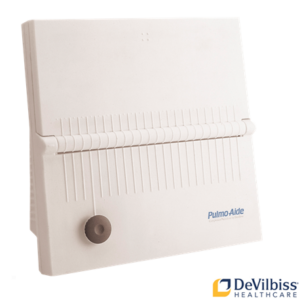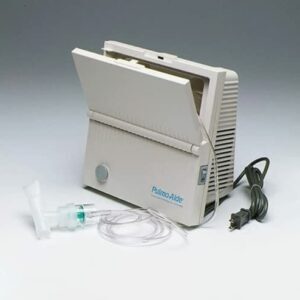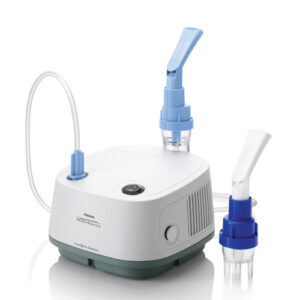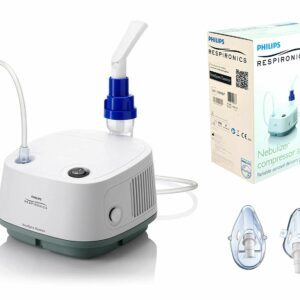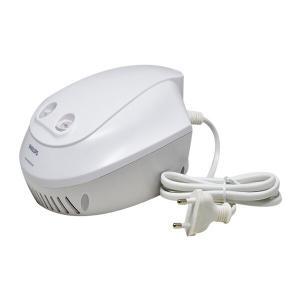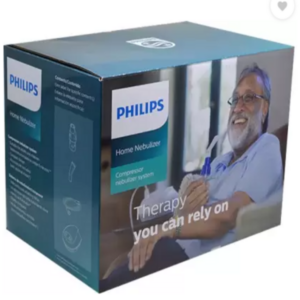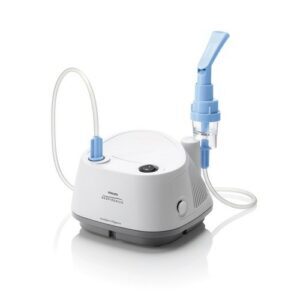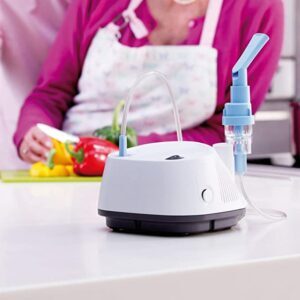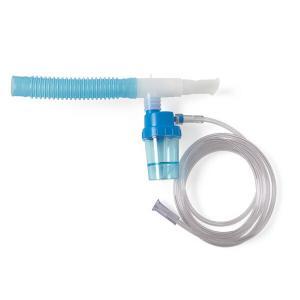Nebulizers Full Price List (2023) – Buy in India
Nebulizers are medical devices used to treat respiratory conditions by converting liquid medication into a mist for direct inhalation into the lungs.
Nebulizers Full Price List (2023) – Buy in India
-
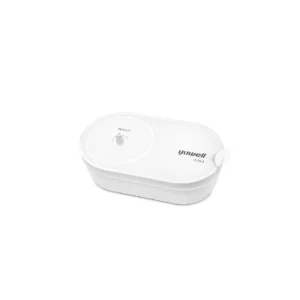 COD AvailableAdd to cartQuick View
COD AvailableAdd to cartQuick View -
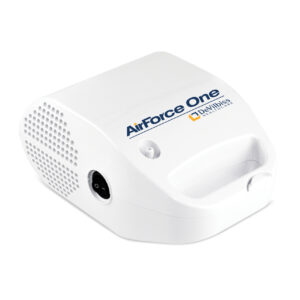
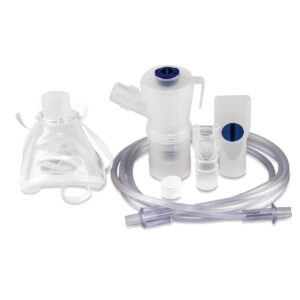 COD AvailableAdd to cartQuick View
COD AvailableAdd to cartQuick View
- Understanding Nebulizers: What They Are and How They Work
Nebulizers are medical devices used to treat respiratory conditions such as asthma, COPD, and cystic fibrosis. They work by converting liquid medication into a fine mist that can be inhaled directly into the lungs. Nebulizers come in two main types – compressor nebulizers and ultrasonic nebulizers. Compressor nebulizers use air compressors to generate the mist, while ultrasonic nebulizers use high-frequency sound waves. Nebulizers are a popular treatment option for respiratory conditions as they provide direct and targeted medication delivery to the lungs.
- Choosing the Right Nebulizer for Your Needs
When choosing a nebulizer, it’s important to consider factors such as portability, noise level, medication compatibility, and ease of use. Portable nebulizers are ideal for on-the-go use, while home nebulizers are better suited for daily use. Noise level can be a concern for some users, so consider a nebulizer with a low decibel rating. Medication compatibility is also important, as not all nebulizers are compatible with all types of medication. Finally, choose a nebulizer that is easy to use and clean, as frequent cleaning is necessary to prevent the buildup of bacteria and other contaminants.
- The Importance of Cleaning Your Nebulizer
Regular cleaning of your nebulizer is crucial to prevent the buildup of bacteria and other contaminants. Most nebulizers can be disassembled for cleaning and should be washed with soap and warm water after each use. It’s also important to disinfect your nebulizer regularly by boiling or using a disinfectant solution. Failure to clean your nebulizer properly can lead to the spread of infections or respiratory complications, so be sure to follow the manufacturer’s instructions for cleaning and disinfecting your device.
- Tips for Using Your Nebulizer Effectively
To ensure effective treatment, it’s important to use your nebulizer properly. Always follow your healthcare provider’s instructions on how often to use the nebulizer and how much medication to take. Sit in an upright position during treatment to allow for maximum inhalation of the mist. Be sure to breathe slowly and deeply to help the medication reach the lungs. Finally, rinse your mouth and spit out any excess medication after each treatment to prevent any unwanted side effects.
- Traveling with Your Nebulizer: What You Need to Know
Traveling with a nebulizer can be a challenge, but with the right preparation, it can be done safely and effectively. Portable nebulizers are ideal for on-the-go use and are small enough to fit in a carry-on bag. Be sure to bring extra medication and nebulizer supplies in case of emergencies. It’s also important to check with your airline regarding their policies on carrying medical devices and to bring a letter from your healthcare provider detailing your condition and treatment plan. With the right planning, traveling with a nebulizer can be a stress-free experience.
Buyer’s Guide to Nebulizers:
Nebulizers are medical devices used to deliver medication directly to the lungs through a fine mist. They are commonly used to treat respiratory conditions such as asthma, chronic obstructive pulmonary disease (COPD), and cystic fibrosis. When choosing a nebulizer, consider the following:
- Type of Nebulizer: There are two main types of nebulizers – compressor nebulizers and ultrasonic nebulizers. Compressor nebulizers use air compressors to convert liquid medication into a mist, while ultrasonic nebulizers use high-frequency sound waves to generate the mist. Compressor nebulizers are more commonly used and are generally more affordable.
- Portability: Some nebulizers are designed for use at home, while others are portable and can be used on the go. Portable nebulizers are battery-operated and can be used anywhere, making them ideal for travel and outdoor activities.
- Noise Level: Nebulizers can be quite loud, which can be a problem for some users. If noise is a concern, consider a nebulizer with a low decibel rating.
- Medication Compatibility: Some nebulizers are compatible with only certain types of medication. Be sure to check which medications are compatible with the nebulizer you are considering before making a purchase.
- Ease of Use: Look for a nebulizer that is easy to use and clean. Some models have complicated instructions or require frequent cleaning, which can be a hassle.
FAQs about Nebulizers:
A nebulizer is a medical device used to deliver medication directly to the lungs through a fine mist. It is commonly used to treat respiratory conditions such as asthma, COPD, and cystic fibrosis.
A nebulizer converts liquid medication into a mist, which can be inhaled directly into the lungs. Compressor nebulizers use air compressors to generate the mist, while ultrasonic nebulizers use high-frequency sound waves.
The frequency of nebulizer use will depend on the individual’s condition and the medication being used. Your healthcare provider will provide instructions on how often to use the nebulizer and how much medication to take.
It is important to clean your nebulizer after each use to prevent the buildup of bacteria and other contaminants. Most nebulizers can be disassembled for cleaning and should be washed with soap and warm water. Be sure to follow the manufacturer’s instructions for cleaning and disinfecting your nebulizer.
Not all medications are compatible with nebulizers. Be sure to check which medications are compatible with the nebulizer you are using before taking any medication. Your healthcare provider can also provide guidance on which medications are best suited for nebulizer use.

